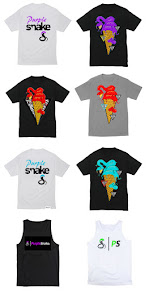
Getty Image
This week, multi-talented music artist Phonte announced to hip-hop outlet DJ Booth that he would be getting back with his brother-in-rhyme Big Pooh and reuniting as Little Brother. The cult heroes will be without their DJ and producer 9th Wonder, which means they won’t be back as a full trio, but their reconvening is still great news. Phonte’s revelation may not be a monumental development to a generation of young rap fans who follow artists like Drake, J. Cole, Kendrick Lamar, and others, but best believe those early-30s artists, whose adolescence was shaped by albums like 2003’s The Listening and 2005’s Minstrel Show, expressed joy and nostalgia upon hearing the news.
Little Brother may not be the first name that rolls off casual hip-hop fans’ tongues when discussing canonical groups, but they’re “if you know, you know” poster children. Even if they didn’t reach commercial heights (thanks to exploits like BET banning their “Lovin’ It” video for being “too intelligent”), their soulful, insightful sound and brilliant meta-criticism of Black culture made an indelible impact on hip-hop. Phonte has admitted, “I definitely think we’re an influence on a lot of guys coming out like Drake and Kendrick [Lamar] because they told me so.” That’s why the Little Brother reunion will be a chance for the group to circle back and get the roses they deserve for their contributions to hip-hop.
The trio, who met at North Carolina Central University in the early 2000s, was one of the first indie acts to catapult to a new plateau via the internet. Early leaks of their “Speed” and “Whatever You Say” singles gained a groundswell of fans on message boards like OkayPlayer. Their debut The Listening album was a critical and underground darling, with Phonte and Pooh’s captivating, honest lyricism laced by 9th Wonder’s soulful, hypnotizing production being deemed a refreshing diversion from the sounds dominating mainstream hip-hop at the time.
It would be easy to champion them by juxtaposing The Listening against the average 106 & Park fodder, but a commendation predicated on comparison doesn’t do their music justice. In any era, songs like “Whatever You Say” would have people feeling like Roots drummer Questlove, who once gushed “I made 4,887,234 people listen to ‘Whatever You Say’ at gunpoint, and I don’t even own a gun!” A song like “Speed,” where Pooh and Phonte rhymed about having day jobs and trying to get by, is eternally relatable.
Their 2005 The Minstrel Show album is also universally relevant. The 17-track album introduced listeners to the fictional UBN (U Black N—-s) Network. If that satire-driven analysis of Black pop culture debuted tomorrow, it would be considered just as timely, provocative, and insightful. Lead single “Lovin’ It” was mired in controversy after BET allegedly refused to air the video because they felt it was “too intelligent” for their audience. Could you imagine the firestorm that such a decision would engender in 2019 with social media?
Luckily for Little Brother, that would never be the case in 2019. Not just because channels like BET and MTV barely play music videos, but because so many of the artists they influenced have shifted hip-hop to a space more palatable for their sound. Phonte once explained, “you have to talk about things that you know. I feel like if I write something and you can listen to my album and hear yourself in a piece of it, then I’ve done my job as an artist.”
He’s certainly not the first artist to express that sentiment, but Little Brother was among the first acts of the early 2000s to reintroduce hip-hop fans to a fun, honest, and soulful sound that was arguably lost when hip-hop shifted from the Native Tongues Posse to machismo and excess in the early-to-mid ‘90s. At one point in hip-hop history, it felt like artists had to have some kind of connection to the streets to break through, and acts like The Roots, Blackstar, and Fugees were exceptions that proved the rule. But Little Brother helped usher in a turning point that several gifted artists would see and take advantage of in the mid-to-late 2000s.
In 2016, Phonte told HipHopDX that he believed “everyone from Wale, J. Cole, Kendrick, Drake, and Kanye West” were Little Brother-influenced. He’s not lying. By the time the group officially announced their breakup in 2010 (9th Wonder had left in 2006), the game was overrun by artists with their DNA.
It’s unlikely that Wale’s early Seinfeld-themed projects and lyrically dense sound wasn’t in part influenced by Little Brother. Ditto J. Cole, Kendrick Lamar, and Kanye West’s honest, humility-tinged recollections of their struggles with romance and trying to achieve their dreams, all carefully presented over soulful production. Drake has repeatedly said that he’s a huge Phonte fan, and even dedicated a 2011 BMI Songwriter of the Year award to Phonte for inspiring him. It’s perhaps one of rap’s great tragedies that Phonte isn’t looked at as the original rapper-singer double threat, as Drake worked with Phonte on 2007’s Comeback Season and inarguably took Phonte’s Foreign Exchange formula to the stratosphere starting with 2009’s So Far Gone.
But their comeback is an opportunity for the rap game to celebrate their impact, and give their upcoming music its just due. Little Brother’s name is derived from the trio considering themselves sonic siblings to predecessors like Public Enemy and A Tribe Called Quest, and now they have little brothers running the rap game. Those little brothers already have another generation emulating them. Their name celebrates the awesome, neverending cycle of hip-hop influence, and it’s only right for them to be one of the first acts who comes back even more beloved before. After all, they dug up the dirt and handled the grunt work for today’s hip-hop, being called “too intelligent” for their efforts. But now they’re back in a botanical garden they helped plant the seeds for.
May 24, 2019 at 12:00PM via ThePurpleSnakeEra


.JPG)